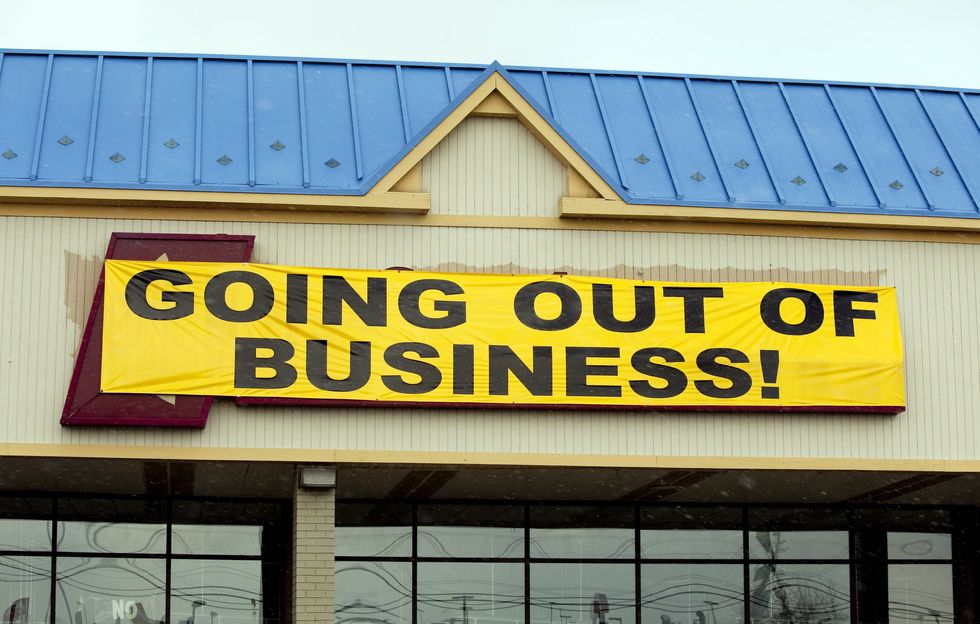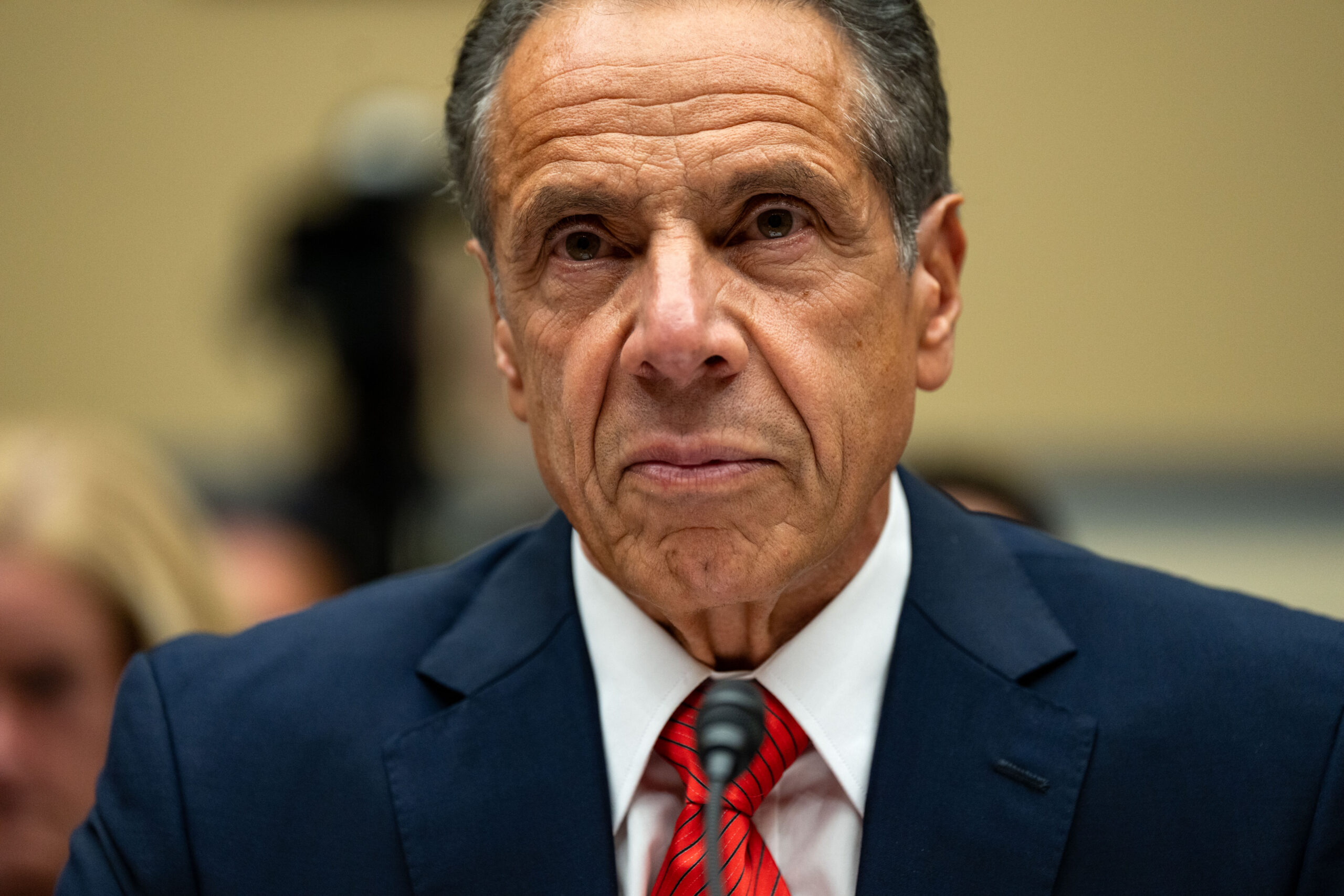Tuesday’s election will be a referendum on American capitalism
Will Joe Biden succeed in undermining the pillars of American capitalism? The Wall Street Journal reported on Oct. 13 that the November election could decide whether Biden’s push to break up American companies simply for being “big” will succeed in the long run.The Journal is correct. This election isn’t just a referendum on what the Biden-Harris administration has done to entrepreneurs over the past four years; it’s also a vote on the future of America’s economy. Another four years of the status quo could turn Biden’s unconventional policies into economic and legal precedents, causing lasting damage.Once-successful companies are closing stores and laying off workers due to the unprecedented anti-business environment fostered by this White House.This issue centers on how, after taking office, Biden and Harris ensured the confirmation of Lina Khan, a progressive favorite, to lead the Federal Trade Commission. Khan quickly reversed 40 years of consensus on antitrust policy by overturning the consumer welfare standard, which had limited government intervention in the economy to cases where consumers faced harm. The Department of Justice, which shares antitrust enforcement with the FTC, soon followed her lead.Under the Biden-Harris administration’s aggressive approach to antitrust, businesses can now be regulated, broken up, or even dissolved for reasons determined by the White House, regardless of whether they lower consumer prices or increase competition. Over the past four years, this approach has led to challenges against companies for simply being “too big.”The good news is that the Biden-Harris administration has lost nearly every corporate challenge it initiated, as courts recognize its anti-capitalism agenda lacks legal grounding and is politically motivated. However, these challenges have still cost thousands of jobs and discouraged businesses from pursuing innovation.When the Biden-Harris administration blocked mergers like Spirit Airlines-JetBlue and Roomba-Amazon, the results were disastrous. Roomba lost jobs and declared bankruptcy, while Spirit now teeters on insolvency due to the administration’s actions.Despite these failures, Biden and Harris continue their push, as shown by a late September lawsuit against Visa.In its latest campaign against capitalism, the Biden-Harris administration’s antitrust cops claim Visa’s debit market is an unchecked monopoly raising consumer prices. But this is far from true. Consumers have a wide range of choices, not only with other debit cards but also through peer-to-peer payment networks like Apple Pay, Cash App, and Venmo.Payment volumes and the number of competitors in this space continue to rise steadily. In a capitalist economy, being a popular choice among consumers isn’t a crime, but the administration is acting as if it is.By overturning the consumer welfare standard, the Biden-Harris administration has created the worst business climate since the Carter era. Once-successful companies — even large chains like 7-Eleven and Walgreens — are closing stores and laying off workers due to the unprecedented anti-business environment fostered by this White House.With the November election now in clear view, voters face a crucial decision.The Wall Street Journal noted that “it is a near certainty that [Khan’s] authority will end if Donald Trump wins the presidency, as many in the GOP favor more latitude for mergers and view Khan as too tough on business.”Voters must make the right choice, as the continuation of this anti-business agenda could lead to incalculable long-term consequences for the free market.As voters stand at this crossroads, the choice is clear. Will they back a government that prioritizes regulation over innovation, or will they support policies that encourage free markets and allow businesses to thrive?The costs of staying the current course are evident — job losses, higher prices, and economic stagnation. A change in direction, however, could promise economic freedom, growth, and prosperity.We’ll have the answer soon, but one thing is clear: The current path of overregulation and government interference is unsustainable. It’s time to empower businesses, foster competition, and create an environment where innovation can flourish for all Americans.Let’s hope voters agree.


Will Joe Biden succeed in undermining the pillars of American capitalism? The Wall Street Journal reported on Oct. 13 that the November election could decide whether Biden’s push to break up American companies simply for being “big” will succeed in the long run.
The Journal is correct. This election isn’t just a referendum on what the Biden-Harris administration has done to entrepreneurs over the past four years; it’s also a vote on the future of America’s economy. Another four years of the status quo could turn Biden’s unconventional policies into economic and legal precedents, causing lasting damage.
Once-successful companies are closing stores and laying off workers due to the unprecedented anti-business environment fostered by this White House.
This issue centers on how, after taking office, Biden and Harris ensured the confirmation of Lina Khan, a progressive favorite, to lead the Federal Trade Commission. Khan quickly reversed 40 years of consensus on antitrust policy by overturning the consumer welfare standard, which had limited government intervention in the economy to cases where consumers faced harm. The Department of Justice, which shares antitrust enforcement with the FTC, soon followed her lead.
Under the Biden-Harris administration’s aggressive approach to antitrust, businesses can now be regulated, broken up, or even dissolved for reasons determined by the White House, regardless of whether they lower consumer prices or increase competition. Over the past four years, this approach has led to challenges against companies for simply being “too big.”
The good news is that the Biden-Harris administration has lost nearly every corporate challenge it initiated, as courts recognize its anti-capitalism agenda lacks legal grounding and is politically motivated. However, these challenges have still cost thousands of jobs and discouraged businesses from pursuing innovation.
When the Biden-Harris administration blocked mergers like Spirit Airlines-JetBlue and Roomba-Amazon, the results were disastrous. Roomba lost jobs and declared bankruptcy, while Spirit now teeters on insolvency due to the administration’s actions.
Despite these failures, Biden and Harris continue their push, as shown by a late September lawsuit against Visa.
In its latest campaign against capitalism, the Biden-Harris administration’s antitrust cops claim Visa’s debit market is an unchecked monopoly raising consumer prices. But this is far from true. Consumers have a wide range of choices, not only with other debit cards but also through peer-to-peer payment networks like Apple Pay, Cash App, and Venmo.
Payment volumes and the number of competitors in this space continue to rise steadily. In a capitalist economy, being a popular choice among consumers isn’t a crime, but the administration is acting as if it is.
By overturning the consumer welfare standard, the Biden-Harris administration has created the worst business climate since the Carter era. Once-successful companies — even large chains like 7-Eleven and Walgreens — are closing stores and laying off workers due to the unprecedented anti-business environment fostered by this White House.
With the November election now in clear view, voters face a crucial decision.
The Wall Street Journal noted that “it is a near certainty that [Khan’s] authority will end if Donald Trump wins the presidency, as many in the GOP favor more latitude for mergers and view Khan as too tough on business.”
Voters must make the right choice, as the continuation of this anti-business agenda could lead to incalculable long-term consequences for the free market.
As voters stand at this crossroads, the choice is clear. Will they back a government that prioritizes regulation over innovation, or will they support policies that encourage free markets and allow businesses to thrive?
The costs of staying the current course are evident — job losses, higher prices, and economic stagnation. A change in direction, however, could promise economic freedom, growth, and prosperity.
We’ll have the answer soon, but one thing is clear: The current path of overregulation and government interference is unsustainable. It’s time to empower businesses, foster competition, and create an environment where innovation can flourish for all Americans.
Let’s hope voters agree.
Originally Published at Daily Wire, World Net Daily, or The Blaze
What's Your Reaction?

































































































